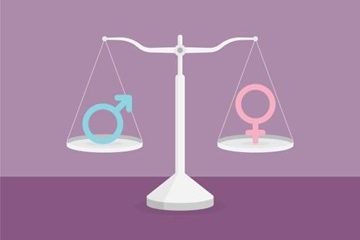The fight for the liberation of women has spanned centuries, and in modern times, International Women’s Day serves as a reminder of how much more work remains of the struggle. First formally observed over 100 years ago, the internationally commemorated day recognizes the women of New York City who protested for better working conditions in 1908. While quality of life has improved working class women continue to face precarious jobs with poor working conditions, unpaid domestic labour and a relentless culture of sexism. This has become more evident during the COVID-19 pandemic, where working class women have continued to be burdened by public facing jobs and even more household work.
The greatest threat to women and women’s health in the 21st century is our continued subjugation by the unabating capitalist system; a system that uses women as a form of cheap labour and their bodies as marketing tools. Capitalism has enormous effects on women’s health, including but not limited to, it’s role in perpetuating gender-based violence and in objectifying and commodifying women’s bodies.
How does capitalism work?
Under capitalism, workers sell their labour to the people who own the modes of production (capitalists), who then make a profit by paying workers less than the value of the product they produced. The main goal of capitalism is to make a profit, and one way that capitalists make profit is by cutting the wages of their workers.
While working class men are also not being paid for the value of their labour, women and marginalized people are being paid even less, and here lies the opportunity for capitalist profits to increase even further. It is commonly known that women earn considerably less than men (a woman earns 77 cents for every 1$ that a man earns). Capitalists benefit off of sexist societal narratives and structures that suggest that women are less capable than men, because it allows for more opportunity to increase profit by paying women workers less. It is therefore in the interest of capitalists and the capitalist system to propagate sexism and to essentially diminish the value of women in society, in order for them to ensure an increase in profit.
How does this affect women’s health?
The value of a person and the relationship dynamics in a capitalist society are often dictated by the amount of money a person has or their job, and the family unit is no exception. In a nuclear family, these power dynamics emerge because the man is paid more than the woman, which can be partly attributed to the gender-wage gap. Similarly, it is evident that women historically have been designated as unpaid domestic workers, which either requires them to take precarious paid work or prevents them from entering the workforce at all.
Without socializing domestic work, women will be unable to fully participate and to have equal ‘power’ in the nuclear family unit, under capitalism. It’s also important to note that unpaid domestic work benefits the capitalist system. Working class women are reproducing and raising future generations of workers for exploitation, for free no less! This is one reason why it will never be in the interest of the capitalist states to emancipate women from this type of work. As long as women are burdened by domestic work and unequal pay, power dynamics within the family unit between the man and the woman will continue to exist.
Capitalism seriously disenfranchises women which creates a vulnerability to violence, particularly intimate partner violence. Financial dependency on abusive partners has been noted as a significant reason women report staying or returning to abusive environments. This dependency is exacerbated in times of crisis, where gender-based and intimate partner violence have heightened because women are now trapped at home with their abusers, and might not be able to access support or financial means to leave or live independently.
Another way violence against women and their bodies is perpetuated under capitalism is through their objectification. Objectification, for example, through advertisements, is used to satisfy the relentless pursuit to sell products (i.e. clothes, cars, guns) and make profit. Women’s bodies become the object of another’s satisfaction and women are stripped of their human value and characteristics. This act of dehumanizing women leads to an increase in women’s vulnerability to violence. Women’s bodies are also commodified, which means “putting a price label on someone who should not be commercialized, transforming that someone into something which can be commercialized because he/she comes thus to have a value for sale, exchange, or use”. The way in which women are transformed into objects and commodities, not only leads to a culture of abuse and violence, it has also resulted in the internalization of these beliefs. The effects of such internalization on women’s health have been noted to include depression, disordered eating, sexual dysfunction and anxiety. The dehumanization of women and women’s bodies through objectification and commodification parallels the exploitation of workers under capitalist society. Capitalism creates a culture where human beings are used, exploited and reduced to objects, at both the interpersonal and societal level.
Gender-based violence and the objectification and commodification of women, often occurs within interpersonal relationships, but it is a manifestation and expression of the sexist structure and system in which it occurs, that of capitalism. It is insufficient to only consider the violence women experience at the interpersonal level because we live in a society where violence against women is pervasive, and society cannot be reduced to the motivation of a single person or a few ‘bad’ people. Human behaviours are the result of the societies and complex systems around us, and our actions and motivations need to be assessed accordingly. This is not to say that an abuser or exploiter does not hold responsibility for what they have done, but what it does mean is that abusers and exploiters, like all humans, are shaped by and reflect their external environments. Women’s emancipation from exploitation and violence needs to be addressed at the systemic level and women’s liberation is dependent on the overthrow of the capitalist system.




0 Comments